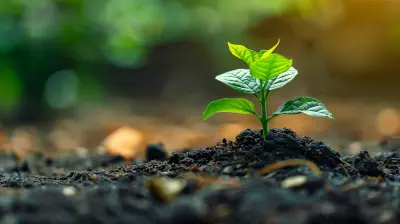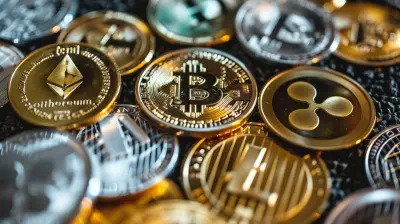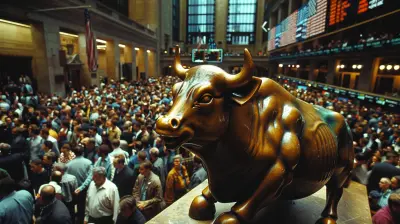Global Wealth Distribution: Why Income Inequality Isn’t Just a Local Issue
23 June 2025
Let’s get one thing straight right from the jump: money talks—and it’s got a global megaphone. When we talk about income inequality, it’s easy to picture it only within our own borders. You might think of wealthy neighborhoods just a stone’s throw away from struggling communities. But the truth? This isn’t just a local issue confined to one city, country, or continent. Global wealth distribution is a massive puzzle, and income inequality is the jagged piece that refuses to fit smoothly into the big picture.
So, why should you care? Because this isn't just about economics. It's about opportunity, justice, power dynamics, and how we all—no matter where we live—are affected by the world’s financial imbalance.
Let’s break it down.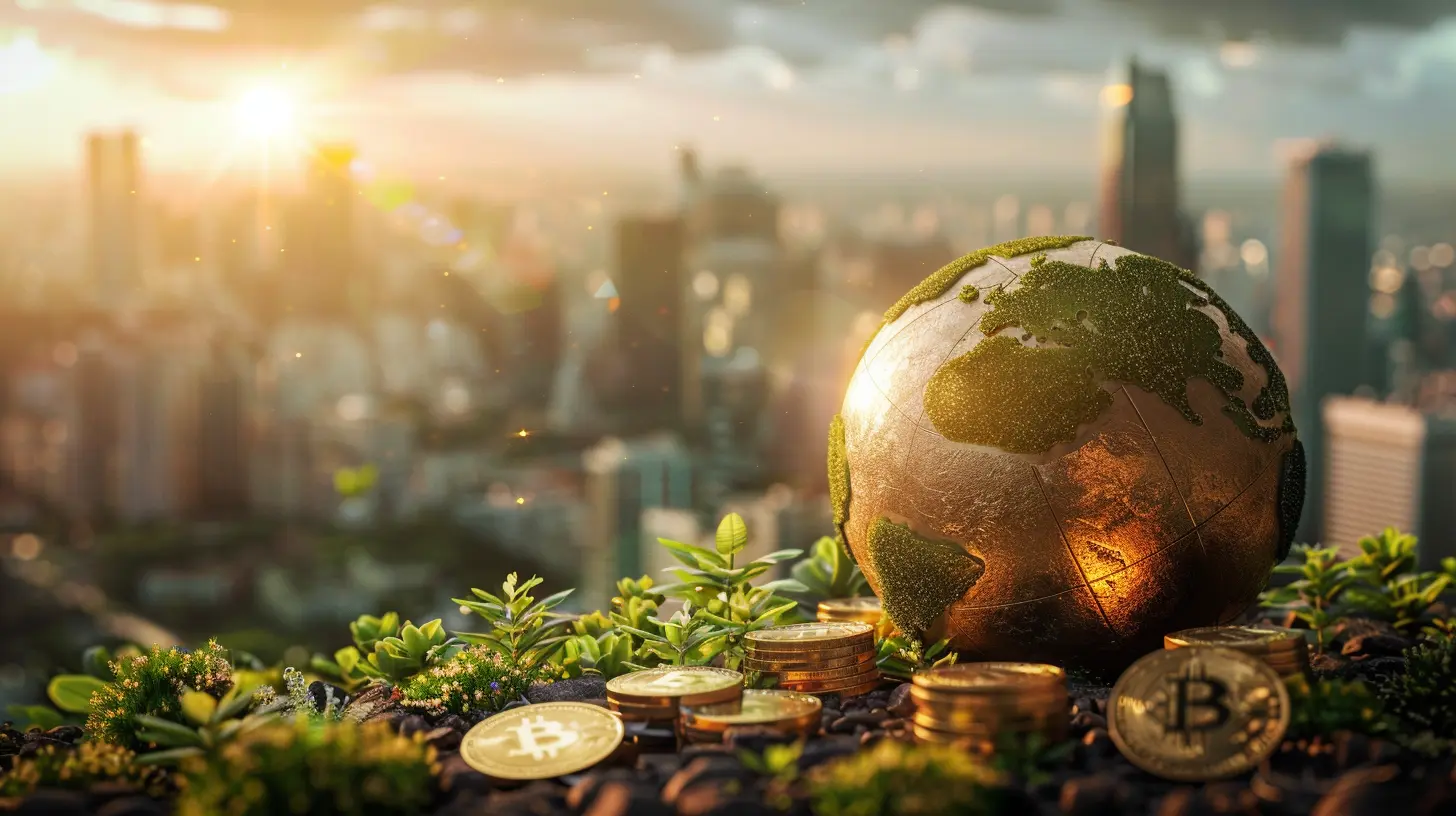
The Big Picture: What Is Global Wealth Distribution?
Global wealth distribution refers to how the world’s money and resources are spread out among countries, regions, and people. Spoiler alert: it’s wildly uneven.Here’s a shocker—according to recent reports, the richest 1% of the global population owns almost half of the world’s wealth. That’s right. A handful of individuals have more money than billions of people combined. Hard to wrap your head around, right?
Imagine a pie. A massive one. If we divided that pie equally among every person on the planet, each slice would represent equal access to resources, education, opportunities, and quality of life. But instead, a small group has nearly the whole pie, leaving crumbs for the rest. And those crumbs? They're not getting any bigger.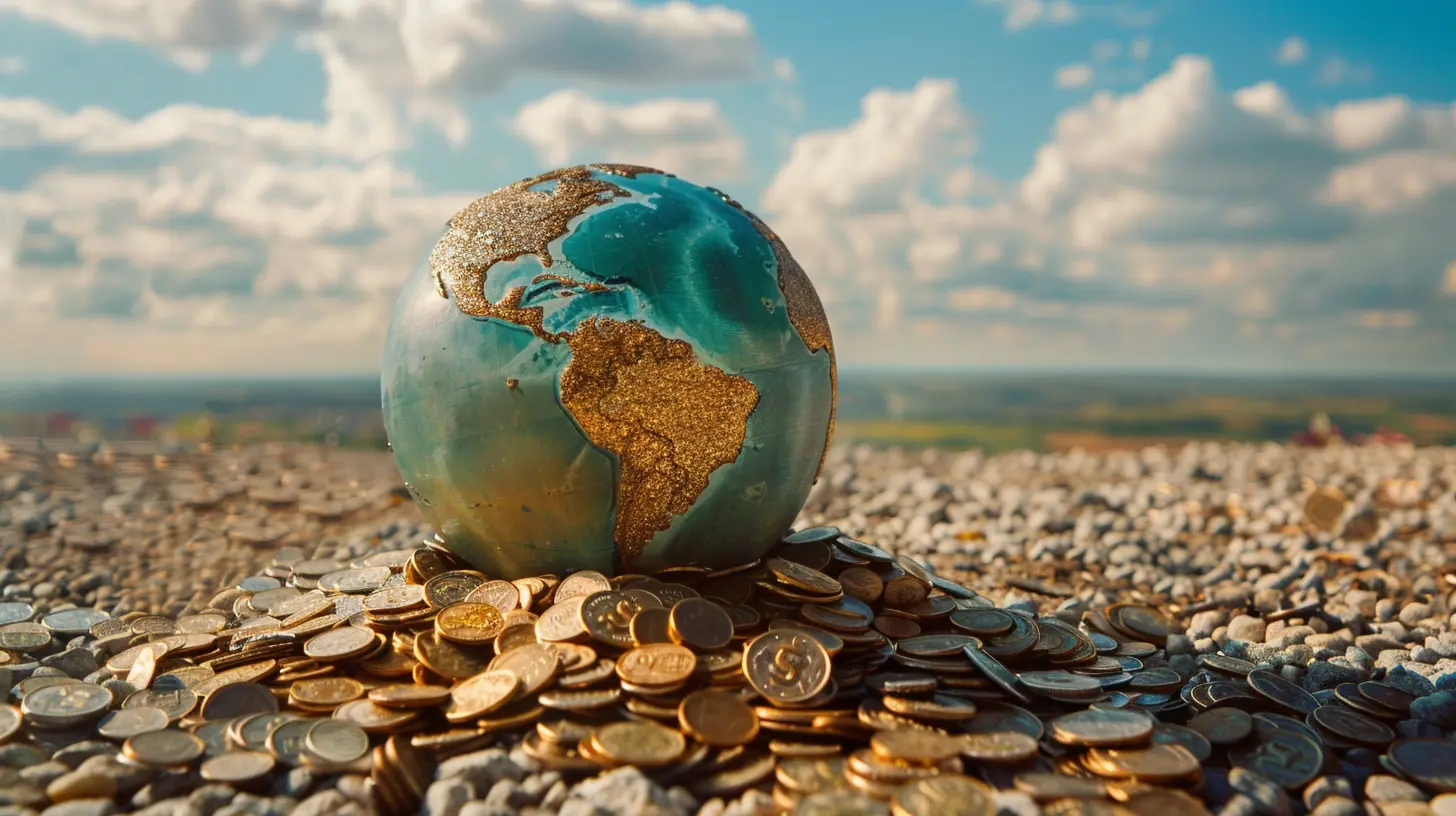
Income Inequality Is Not Bound by Borders
Let’s be honest—when you hear “income inequality,” your mind might go to Silicon Valley millionaires living just miles from homeless encampments or New York’s glitzy skyscrapers casting shadows on struggling boroughs. But zoom out a bit.This is playing out on a global stage.
Picture this: a factory worker in Bangladesh earning $100 a month and a hedge fund manager in London pulling in $100,000 a day. Same planet, different worlds.
Even more eye-opening? Many of the companies profiting from cheap labor in developing countries are headquartered in rich nations. That means wealth is being extracted from the poorest regions and funneled into already wealthy ones. It’s like siphoning gas from a broken-down car to fuel a sports car.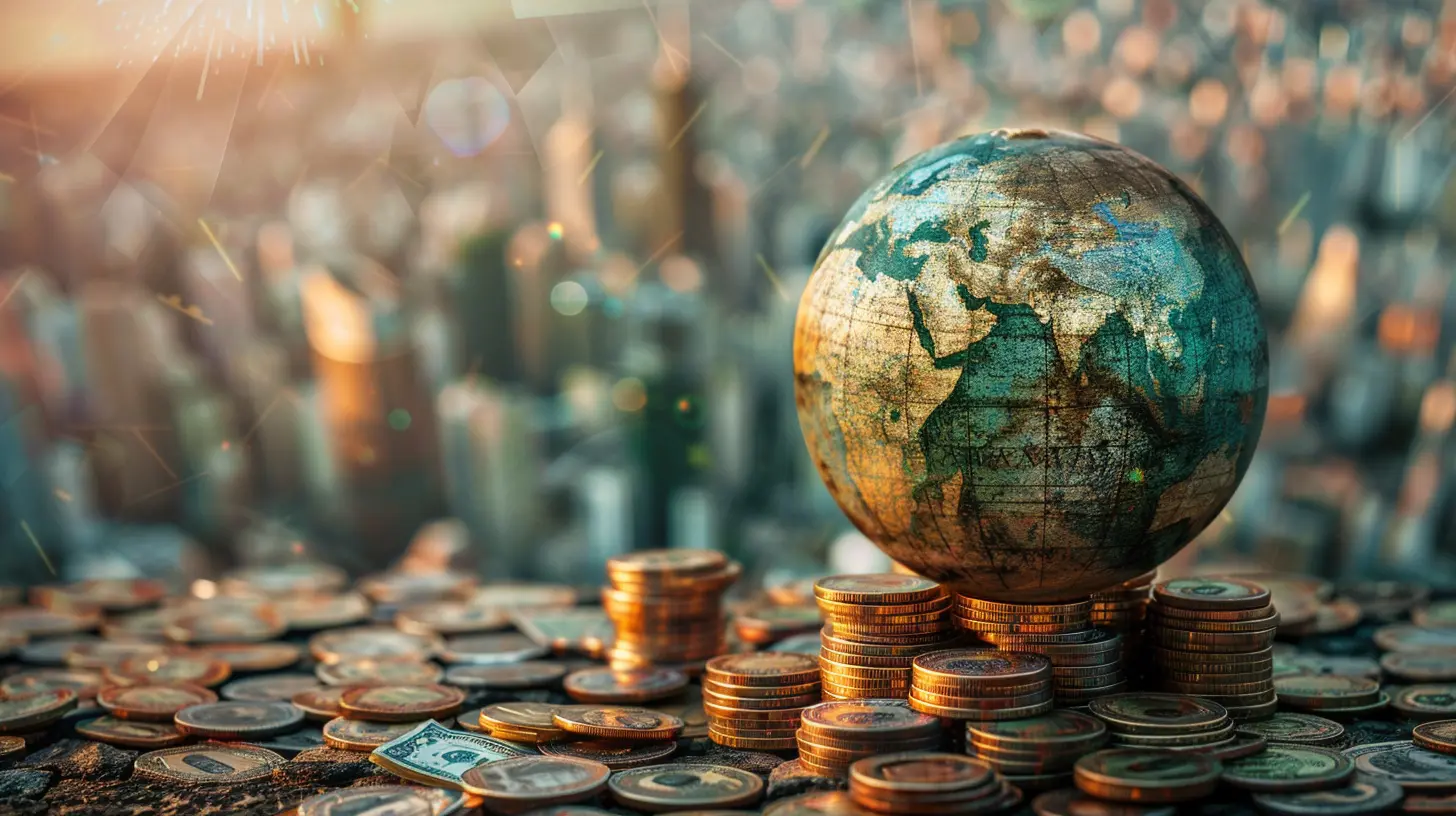
What Fuels Global Income Inequality?
Income inequality doesn’t just happen—it’s engineered by a complex mix of historical, economic, and political factors. Here are the biggest culprits:1. Colonial History
The impact of colonialism didn’t vanish with independence. Colonial powers extracted resources, exploited labor, and disrupted local economies for centuries. These historical injustices laid the foundation for economic disparity that still echoes today.2. Global Trade Systems
The global trade system is stacked in favor of wealthier nations. Rich countries often set the rules—like tariffs and subsidies—that protect their own industries while disadvantaging poorer ones. Sounds unfair? That’s because it is.3. Tax Evasion and Offshore Accounts
Let’s talk about how the ultra-wealthy play the system. Through tax havens and offshore banking, trillions of dollars are hidden from governments. That’s money that could be used for healthcare, education, and infrastructure in struggling countries. But instead, it's collecting dust in a vault on some private island.4. Tech and Automation
Sure, technology is amazing. But it’s also widening the income gap. High-paying tech jobs are mostly in developed countries, while automation threatens low-skilled jobs in poorer nations. So while Silicon Valley thrives, other regions are left behind.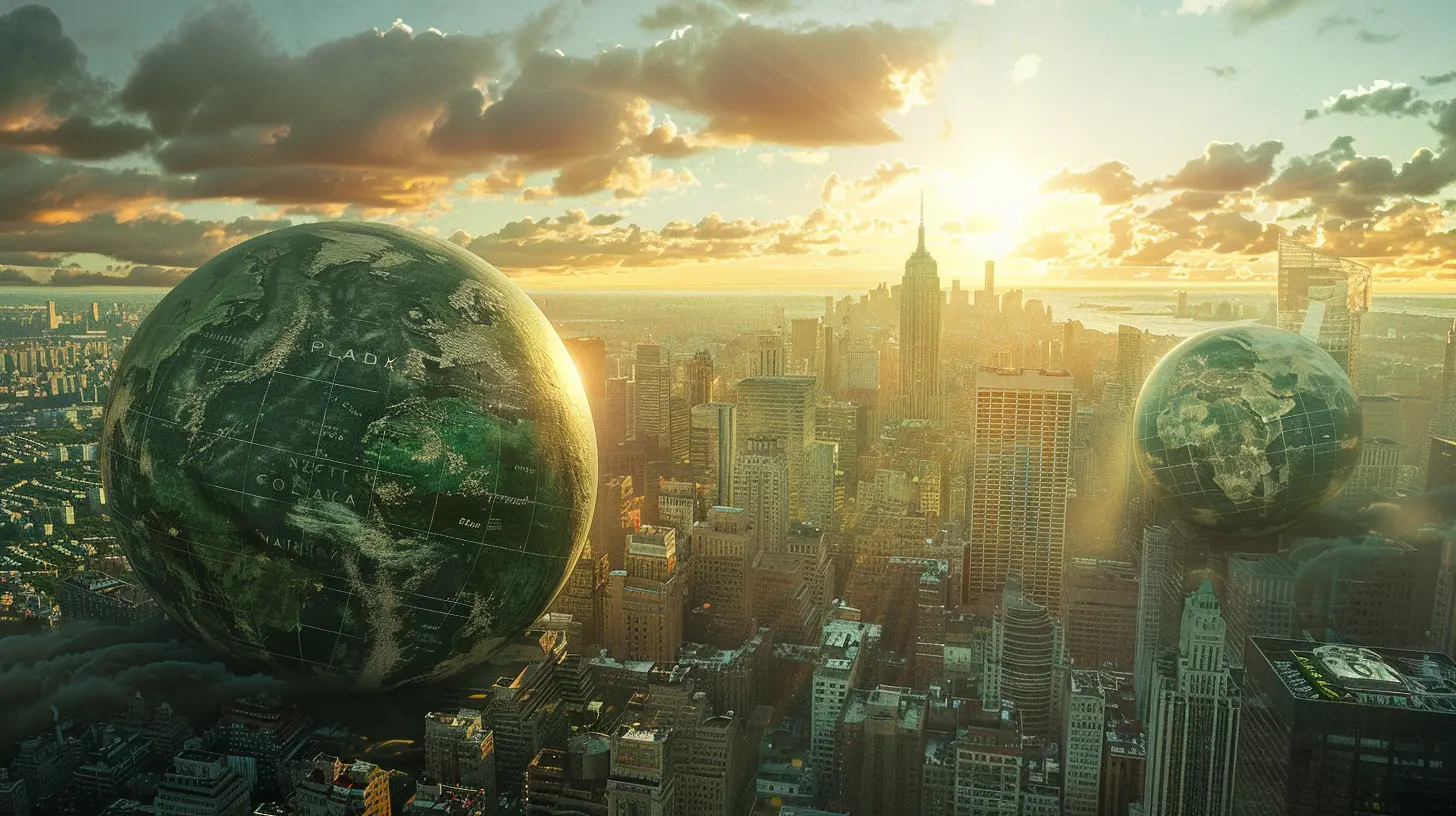
The Domino Effect: Why This Affects Everyone (Yes, Even You)
Here’s where things get real. Income inequality isn’t just a problem for “other” people. It’s a mess that seeps into everything—from global security and migration to health crises and climate change.🌍 Global Instability
When wealth is hoarded at the top, communities lack the resources they need. That breeds frustration, political instability, and even conflict. We’ve seen how economic despair can fuel extremism or force people to migrate. It’s not a stretch—it’s fact.💸 Slower Economic Growth
Think trickle-down economics works? Think again. When the rich get richer and the poor stay poor, overall demand in the economy drops. The average person can’t afford to buy goods or invest, which stunts growth for everyone. It’s like trying to inflate a balloon with a hole in it.🦠 Health and Pandemics
Income inequality has a direct link to global health. Poorer communities often lack access to healthcare, clean water, and nutritious food. That vulnerability doesn’t stay contained. As we saw with COVID-19, diseases don’t carry passports.☀️ Environmental Impact
Ironically, the countries that contribute the least to climate change are the ones suffering the most. And without financial resources, they can’t adapt or rebuild. Wealth inequality makes fighting global warming a thousand times harder.Can We Fix It? (Spoiler: Yes, but It’s Gonna Take Work)
Okay, so the picture looks grim—but don’t tune out just yet. Solutions exist. The question is whether we have the will to implement them.Here’s what can work:
🔁 Fair Trade Practices
We need to level the playing field. That means revising trade policies to support developing nations and give them fair access to markets.💼 Education and Job Programs
Giving people skills they can use to earn a living wage is a game-changer. Investing in global education and job creation helps shrink the wealth gap long-term.💰 Global Wealth Tax
Nope, we’re not joking. A global tax on billionaires could generate billions in revenue for social programs. It’s radical—but also extremely effective if done right.🌐 International Cooperation
No country can solve this alone. Real progress requires collaboration between governments, corporations, and organizations. Think global, act together.The Role of Everyday People (Yes, You Included)
Don’t fall into the trap of thinking only politicians can fix this. We all play a part. Whether it’s choosing ethical brands, supporting fair trade, or advocating for policy changes—you have power.Ask yourself: What story do you want global wealth to tell 50 years from now? One of greed and hoarding, or one of shared prosperity?
Wrapping It Up: A Shared Responsibility
Global wealth distribution isn’t just about numbers and charts. It’s about people—real lives, real struggles, and real potential. Letting inequality deepen is no longer a viable option if we want a stable, fair, and sustainable world.So let’s stop pretending income inequality is someone else’s problem. It’s ours. Yours. Mine. Everyone’s. And while the challenge is global, the response should be, too.
all images in this post were generated using AI tools
Category:
Income InequalityAuthor:

Zavier Larsen
Discussion
rate this article
2 comments
Daisy McLean
This article sheds light on the pervasive nature of income inequality across the globe. It’s crucial to recognize that wealth distribution affects not only individual nations but also global stability. Addressing these disparities is essential for sustainable economic growth worldwide.
October 28, 2025 at 4:42 AM

Zavier Larsen
Thank you for your insightful comment! I completely agree—recognizing the global implications of income inequality is vital for fostering sustainable economic growth and stability.
Lumen Bell
“Uneven fortunes ripple through economies, intertwining destinies and sowing discord. As wealth concentrates, what hidden forces are at play beneath the surface of inequality?”
July 3, 2025 at 4:33 AM

Zavier Larsen
Thank you for your insightful comment! Inequality not only disrupts local economies but also resonates globally, driven by systemic factors like policies, technology, and capital flows that amplify wealth disparities and their social consequences.
